Importance of measuring body parameters
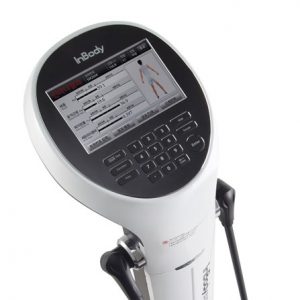 A comprehensive approach to one’s own health does not start with diet and active physical exercises, but with extensive diagnostics. Measurement of the body’s tissue parameters, which is carried out with the help of special InBody body composition analyzers, makes it possible to obtain detailed information about the volume of fat and muscle, the presence of internal deposits, the rate of basal metabolism, the amount of water and bone mass.
A comprehensive approach to one’s own health does not start with diet and active physical exercises, but with extensive diagnostics. Measurement of the body’s tissue parameters, which is carried out with the help of special InBody body composition analyzers, makes it possible to obtain detailed information about the volume of fat and muscle, the presence of internal deposits, the rate of basal metabolism, the amount of water and bone mass.
Based on the information obtained, the dietitian can prepare the most effective diet and eating regimen, which will take into account the individual parameters of the organism and the rate of metabolic processes. Measuring the characteristics of the body helps not only to get rid of unnecessary excess weight, but also to prevent problems, the existence of which a person often does not even know.
Sign up now and get your first training session for free!
EXPECTED RESULT: A BEAUTIFUL AND HEALTHY BODY
The importance of this diagnosis is mainly characterized by the high effectiveness of the training program and diet – both prepared on the basis of the information obtained. With the help of preliminary examination, a person can not only reduce and maintain weight, but also gain muscle mass. In addition, the measurement of the parameters makes it possible to detect at an early stage obesity or insufficient body weight.
Overweight is the cause of diabetes and causes irreparable damage to the cardiovascular system. Obesity or underweight causes metabolic disorders and diseases of the endocrine system.
COMPREHENSIVE HEALTH AND FITNESS DIAGNOSTICS
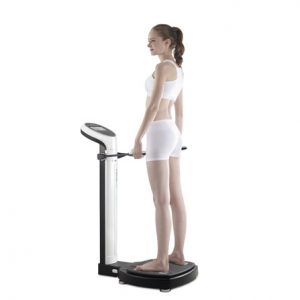 The importance of measuring body parameters also lies in the monitoring of internal deposits that are located in the abdominal area. A large accumulation of such fat interferes with glucose digestion, leading to dyslipidemia, high blood pressure and insulin resistance. Assessment of body composition allows you to detect at an early stage not only unnecessary accumulation of fatty tissues and weight loss, but also negative changes in water balance, a decrease in bone density. Measurement of parameters becomes an obligatory procedure when dietary correction, hemodialysis, regenerative therapy in sports medicine and gerontology are carried out. Comprehensive diagnostics consists of traditional anthropometric methods and informative instrumental-analytical methods.
The importance of measuring body parameters also lies in the monitoring of internal deposits that are located in the abdominal area. A large accumulation of such fat interferes with glucose digestion, leading to dyslipidemia, high blood pressure and insulin resistance. Assessment of body composition allows you to detect at an early stage not only unnecessary accumulation of fatty tissues and weight loss, but also negative changes in water balance, a decrease in bone density. Measurement of parameters becomes an obligatory procedure when dietary correction, hemodialysis, regenerative therapy in sports medicine and gerontology are carried out. Comprehensive diagnostics consists of traditional anthropometric methods and informative instrumental-analytical methods.
INDIVIDUAL BODY PARTS: KNOW WHAT MAKES UP YOUR WEIGHT
The professional body analyzer InBody evaluates the body at the molecular level according to 4 basic components: muscle mass, fat mass, mineral mass, water in the body, and also measures the rate of metabolic processes, calculates the minimum volume of calories per day to obtain the ideal result for a particular person, without risking damage to health. When the balance between the body components is disturbed, problems such as obesity, malnutrition, osteoporosis and other problems related to the individual body components and the rate of metabolic processes can manifest or develop.
 Total weight (kg) – the most widely used parameter in the assessment of slimness, health. In the process of correcting the figure or in the training process, most people focus only on the measurement of total weight, not knowing which element of body structure has decreased or increased. Knowing the individual components of body structure allows not only to control the transformation of the body, but also to prevent diseases and complications that are associated with changes in individual body components.
Total weight (kg) – the most widely used parameter in the assessment of slimness, health. In the process of correcting the figure or in the training process, most people focus only on the measurement of total weight, not knowing which element of body structure has decreased or increased. Knowing the individual components of body structure allows not only to control the transformation of the body, but also to prevent diseases and complications that are associated with changes in individual body components.
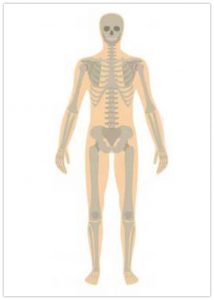
Mineral mass (kg) – includes a group of parameters such as the volume of minerals, protein, which indicates the density of bone tissue, a sufficient level of protein and amino acids.
The information helps to determine or diagnose at an early stage total demineralization, osteoporosis, that is, a decrease in the density of bone tissue, in soft tissues – the deposition of salts, disruption of electrolyte balance, the formation of organic stones in the kidneys.
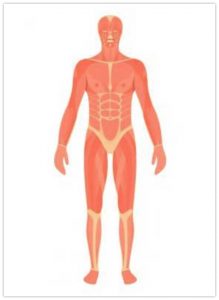 Muscle mass (kg) – these parameters assess the volume of muscle tissue by body structure, including BMI or LBM measurements by body part, as well as measuring musculoskeletal mass, the volume of muscle that is connected to bone. Measurement and monitoring of muscle mass parameters makes it possible to determine with a high degree of accuracy various forms of obesity, exhaustion, metabolic disorders, diabetes, thyroid disorders, and also to diagnose muscular dystrophy of various kinds, the consequences of anabolic drug use, disorders of the nerve supply to the muscles, orthopaedic problems – for example, scoliosis.
Muscle mass (kg) – these parameters assess the volume of muscle tissue by body structure, including BMI or LBM measurements by body part, as well as measuring musculoskeletal mass, the volume of muscle that is connected to bone. Measurement and monitoring of muscle mass parameters makes it possible to determine with a high degree of accuracy various forms of obesity, exhaustion, metabolic disorders, diabetes, thyroid disorders, and also to diagnose muscular dystrophy of various kinds, the consequences of anabolic drug use, disorders of the nerve supply to the muscles, orthopaedic problems – for example, scoliosis.
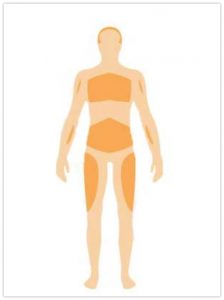 Fat mass (kg) – includes a group of parameters such as the percentage of fat (PT), the value of internal and abdominal fat, the accumulation of fat in the abdomen, hips and around the internal organs. Assessment of areas of internal obesity. Measurement of these parameters helps to determine various forms of obesity, wasting, metabolic disorders, diabetes, metabolic syndrome, thyroid disorder, gonadal disorders, reduced fertility.
Fat mass (kg) – includes a group of parameters such as the percentage of fat (PT), the value of internal and abdominal fat, the accumulation of fat in the abdomen, hips and around the internal organs. Assessment of areas of internal obesity. Measurement of these parameters helps to determine various forms of obesity, wasting, metabolic disorders, diabetes, metabolic syndrome, thyroid disorder, gonadal disorders, reduced fertility.
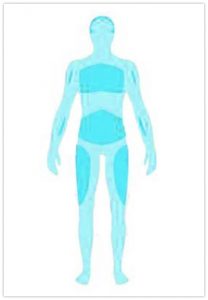 Water in the body (l) – a group of parameters that assess the overall balance of the organism and the distribution of fluid inside and outside the cells, determine the relationship between the parameters ECW/TBW, the dynamics of the change in the ratio between the water environments of the organism. The information from the above group of parameters allows to diagnose with high accuracy the swelling, including individual parts of the body, and also to determine the degree of overhydration, dehydration. Water balance in the body is the most important parameter that must be checked regardless of age or state of health. Factors such as sodium levels, injuries, swelling, disease, cell health and aging are common causes of imbalances in the water sectors of the body. Regular control and monitoring of this parameter allows to prevent health problems at an early stage and improve the overall condition of the organism.
Water in the body (l) – a group of parameters that assess the overall balance of the organism and the distribution of fluid inside and outside the cells, determine the relationship between the parameters ECW/TBW, the dynamics of the change in the ratio between the water environments of the organism. The information from the above group of parameters allows to diagnose with high accuracy the swelling, including individual parts of the body, and also to determine the degree of overhydration, dehydration. Water balance in the body is the most important parameter that must be checked regardless of age or state of health. Factors such as sodium levels, injuries, swelling, disease, cell health and aging are common causes of imbalances in the water sectors of the body. Regular control and monitoring of this parameter allows to prevent health problems at an early stage and improve the overall condition of the organism.
Want to know even more about yourself?
Sign up now and get your first workout including analysis on InBody absolutely free!

